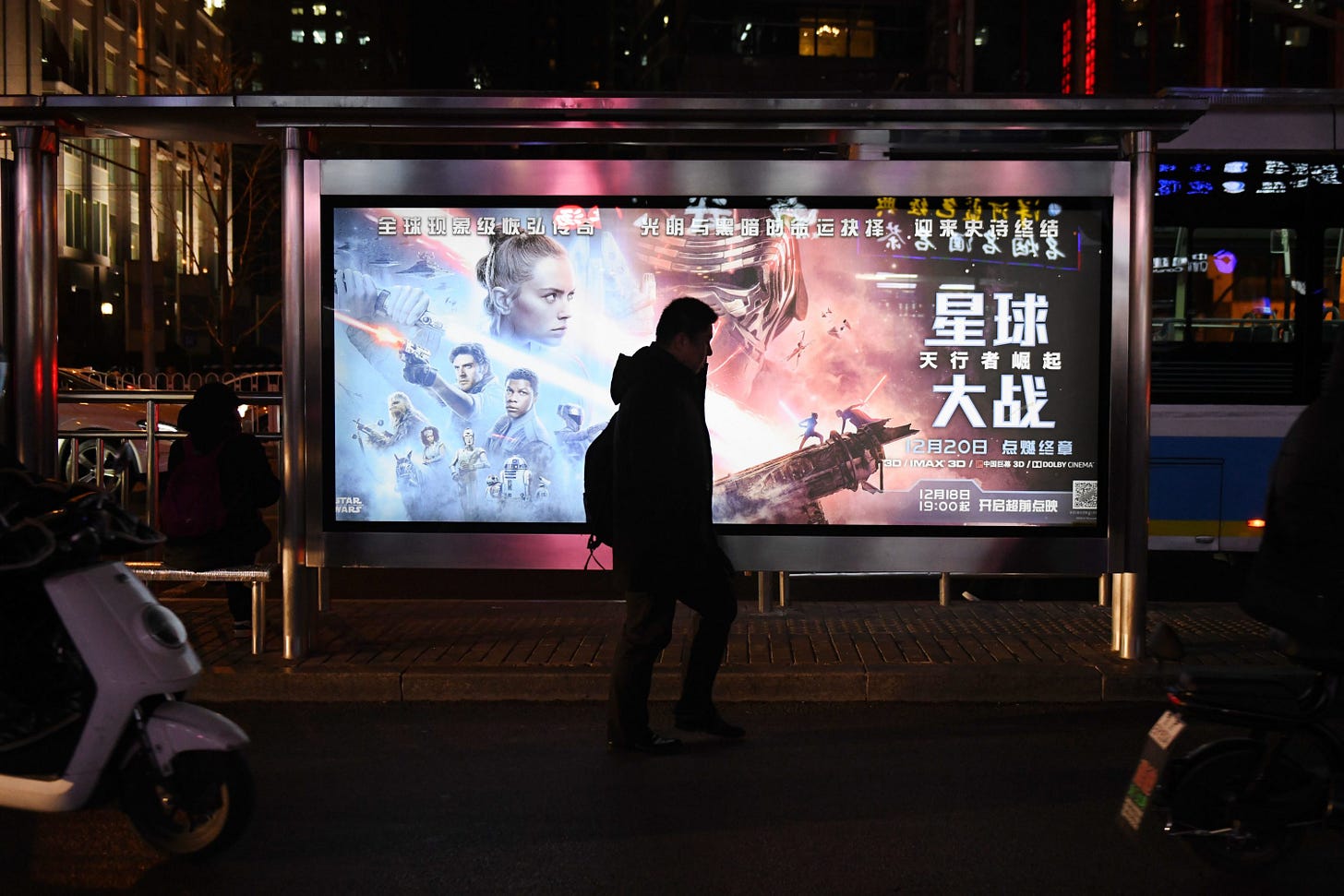PEN Report Details China’s Malign Influence on Hollywood
Richard Gere and Quentin Tarantino are two of the bravest people in Hollywood.

PEN America’s new report on the influence China has over Hollywood writ large is a must-read for anyone interested in understanding how the increasingly global nature of filmmaking has rendered American studios unable to push back against the Middle Kingdom’s censoriousness.
The combination of China’s growing share of the global box office—before the COVID-19 epidemic kicked into gear it was the world’s second-large market, after America, and well on its way to becoming the largest thanks to a burgeoning Chinese middle class—and that country’s strict control over which films get seen by paying audience has effectively neutered Hollywood’s ability to criticize an autocratic regime standing up concentration camps for persecuted religious minorities.
Americans complaining about the MPAA’s rating system sometimes describe it as censorship. But they’ve forgotten that the MPAA was actually a solution to literal censorship—review boards snipping up film reels county-by-county to protect citizens from immoral art. These folks can be reminded of what actual censorship looks like by learning about the Chinese system: “The Chinese government imposes a strict pre-publication review system for all films, and retains the right to ban any film that does not comply from being shown in theaters—or even from streaming online—within the country.” The censorship topics are impossibly broad, meaning that virtually anything can be found in violation, but they’re all designed to do one thing: protect the ruling party from criticism and dissent.
China occasionally demands edits for a movie to be shown, and folks in Hollywood are usually willing to go along to get along; this is why Quentin Tarantino deserved so much praise for refusing to cut a scene about Bruce Lee after his daughter complained to Chinese censors about the legendary martial artist and actor’s portrayal in Once Upon a Time … in Hollywood. Other productions were less brave; ironically, America’s greatest fighter pilot, reborn in Top Gun: Maverick, bowed to Chinese pressure by removing the Taiwanese and Japanese flags from Maverick’s flight jacket.
But Maverick’s preemptive airbrushing might have been an example of another insidious side-effect of China’s malign influence. More dangerous, and harder to quantify, than the edits demanded are the movies that simply never get made. Movies that studios pass on for fear of angering Xi Jinping and the Chinese Communist Party. Movies that would get locked out of the lucrative Chinese market—movies that might even get a studio’s whole slate locked out of the Chinese market. “The big story is not what’s getting changed, but what is not ever even getting greenlit,” Michael Berry, director of the Center for Chinese Studies at UCLA, told PEN.
That sort of comment always makes me think of Richard Gere, an outspoken advocate for Tibetan rights who hasn’t quite disappeared from the big screen but certainly hasn’t enjoyed the sort of career an actor of his stature and caliber might expect as he enters his golden years.
"There are definitely movies that I can't be in because the Chinese will say, 'Not with him,'" Gere told the Hollywood Reporter in 2017. "I recently had an episode where someone said they could not finance a film with me because it would upset the Chinese." Those who live in China could face more dire consequences for working with him: “There was something I was going to do with a Chinese director, and two weeks before we were going to shoot, he called saying, 'Sorry, I can't do it,'" confides Gere. "We had a secret phone call on a protected line. If I had worked with this director, he, his family would never have been allowed to leave the country ever again, and he would never work."
Gere says he has no regrets, snarking that he doesn’t want to be the villain in some tentpole or the wizened leader of a space rebellion anyway. But you have to admire his willingness sacrifice some part of his career—and his audience—in order to stand for something larger.


